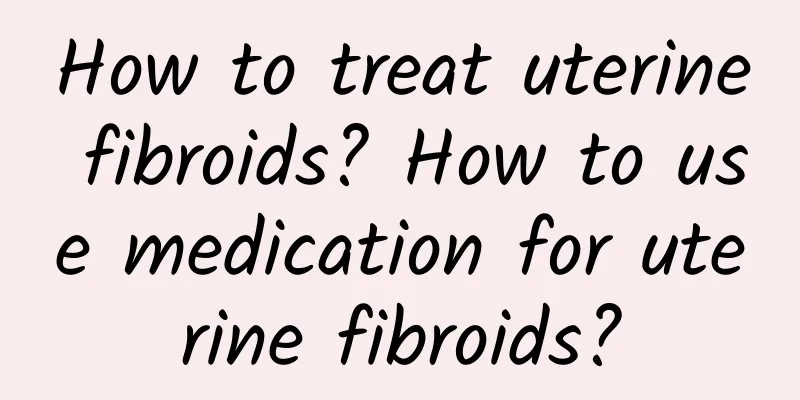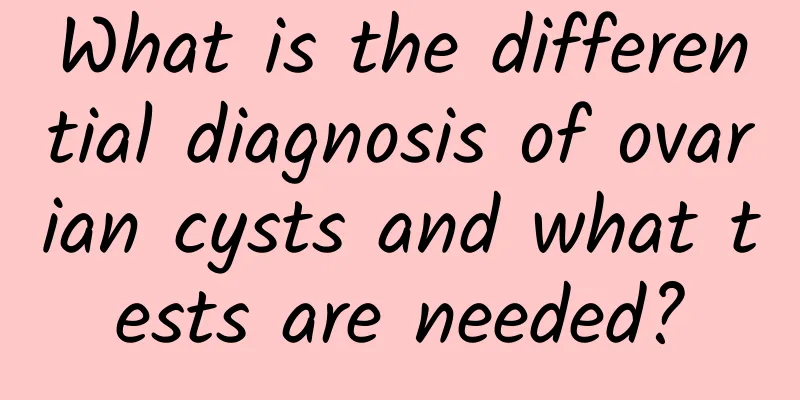How to treat uterine fibroids? How to use medication for uterine fibroids?

|
The incidence of uterine fibroids in women is still relatively high. Some women do not receive timely treatment after becoming ill, which leads to some adverse consequences or even malignant changes. So, how to treat uterine fibroids? 1. Conservative drug treatment. Conservative treatment is mainly for patients with less serious conditions, and is generally based on drug treatment. Conservative treatment requires certain conditions to be met, namely, the tumor does not exceed the size of a 6-week pregnancy; menopausal women are asymptomatic; near-menopausal women can reduce bleeding through non-surgical treatment; patients with uterine fibroids who cannot tolerate surgery may consider conservative treatment. 2. Surgical treatment. There are many surgical methods, including hysterectomy and uterine preservation. Patients who undergo hysterectomy generally have large fibroids, severe symptoms, ineffective conservative treatment, or malignant lesions. Uterine fibroid preservation surgery can be divided into traditional open surgery, minimally invasive surgery, and non-invasive surgery. 3. Treatment with traditional Chinese medicine. Treatment with traditional Chinese medicine can gradually eliminate simple hypertrophy of the myometrium, improve blood circulation of the hyperplastic endometrium, and soften hyperplastic connective tissue, thereby eliminating pain, regulating menstruation, stopping bleeding, and restoring ovarian function, effectively softening the tumor, controlling tumor growth, and eventually dissipating it. 4. Expectant therapy. This is mainly suitable for patients aged 40 to 50 years old who have begun to experience menopause and have mild clinical symptoms. The so-called expectant therapy is what is commonly referred to as observation in clinical practice, which does not use any drugs or other treatment methods. Gynecological internal examination and B-ultrasound examination are performed every 3 months. If the fibroids do not grow fast and have little effect on menstruation, it can be expected that the uterine fibroids will shrink with age and the decline of sex hormone levels. |
<<: How to treat uterine fibroids? How to use medication for uterine fibroids?
Recommend
How should women detect and prevent ectopic pregnancy in time?
How should women detect and prevent ectopic pregn...
How to treat multiple uterine fibroids How to treat multiple uterine fibroids
How to treat multiple uterine fibroids? We must m...
How much does uterine effusion surgery cost?
Uterine effusion is the most common disease, so f...
JR Ji Yankai has deep cleavage abdominal muscles! The coach teaches you 3 easy ways to practice
According to media reports, artist JR Ji Yankai, ...
What are the serious dangers of Trichomonas vaginitis?
In modern society, more and more women suffer fro...
What are the symptoms of uterine fibroids? How to treat uterine fibroids?
Fibroids may appear in a woman's uterus since...
Do you know what causes vaginitis?
Do you know what causes vaginitis? Nowadays, vagi...
Patients with uterine fibroids should learn about their health care methods
There are more and more patients with uterine fib...
Half size smaller! Reduce edema and eat light potassium + E
I have edema again, what should I do? Office work...
The difference between minimally invasive abortion and painless abortion
With the continuous advancement of medical techno...
Want to gain muscle and lose fat? Experts teach you how to easily serve restaurant-level dishes. Homemade chicken, pumpkin and soy milk stew is delicious and nutritious
Brown rice stew is easy to digest and makes it ea...
What are the dangers of cervical warts
Cervical warts are a very harmful disease that ca...
Batch inspection of imported beef will start at 0:00 on the 24th
The Food and Drug Administration of the Departmen...
Can habitual miscarriage lead to infertility? What is habitual miscarriage?
In the early stage of habitual miscarriage, only ...
What symptoms will patients with cervical hypertrophy have?
Cervical hypertrophy is a common disease that occ...









